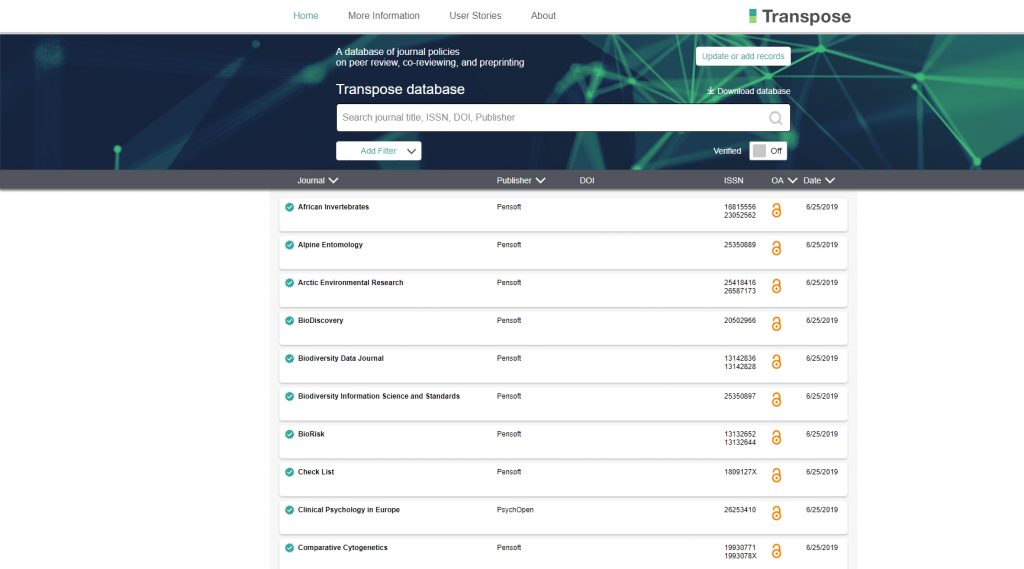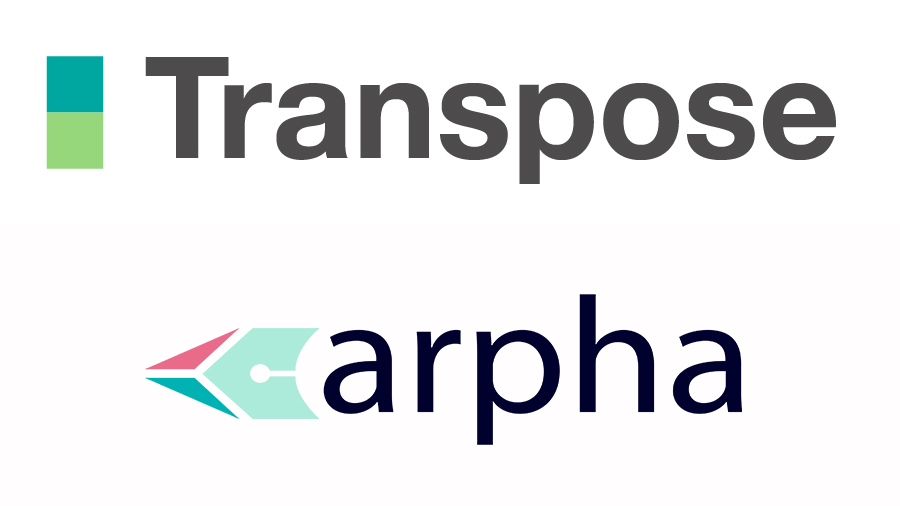All open-access, peer-reviewed academic titles of Pensoft‘s, as well as those using the white-label publishing solution provided by the scholarly publishing platform ARPHA, have their journal policy data fed into the Transpose database, in order to increase their discoverability and transparency.
Thanks to the recent integration with the community-sourced initiative Transpose, details about each journal’s approach to peer review, co-review and preprint publication can be easily accessed, navigated and compared through a user-friendly interface. Visitors can also query the data by journal title, publisher, ISSN or DOI, and apply several filters.
Having estimated that almost 1/3 of the top-cited journals across disciplines do not provide clearly basic information about their editorial policies, including whether they operate blind peer review or not, the team behind Transpose launched the forward-thinking community-sourced initiative with the aim to advance practices in academia and increase awareness and transparency amongst authors, editors and many other stakeholder groups. To highlight the essentiality of free and easy access to editorial policies for a wide range of actors, Transpose have published user testimonials on their website coming from various points of view, including early researchers, supervisors, project investigators, funders, publishing staff, and others.

Recent integration of the scholarly publishing platform ARPHA and Transpose results in the editorial policies of all ARPHA-hosted journals being fed into the associated database. Thus, various stakeholders from across the academic landscape are provided with an easy access to details about the peer review, co-review and preprint policies at each journal via a user-friendly interface.
Pensoft and ARPHA’s founder and CEO Prof. Lyubomir Penev says:
“Having been Open Science advocates from the very beginning, at Pensoft and ARPHA, we have always supported our clients and users in being as transparent as possible. Favourite examples are the open-science journal Research Ideas and Outcomes (RIO), welcoming continuously updatable publications from across the whole research cycle, and Rethinking Ecology, launched to voice innovative and even bold ideas for the purposes of taking swift actions towards the conservation of the environment. The former operates public pre- and post-publication peer review to support efficient collaboration in research, while the latter relies on double-blind peer reviews, in order to encourage researchers of various experience and background to share their inventive ideas in ecology. Obviously, journal policies are and should be crucial when it comes to picking a specific journal over another regardless of the perspective. This is why I am certain that joining Transpose is doing good for all ARPHA-hosted journals, as well as the academic community.”
ASAPbio‘s Executive Director and member of the team behind Transpose, Dr Jessica Polka adds:
“We’re thrilled to incorporate data from Pensoft into Transpose. Making policy information clear and easy to find ensures that authors and reviewers can work with journals that best align with their values — and that scholarly work can be fairly interpreted by everyone, including general readers.”
###
Additional information:
About Transpose:
Transpose is an initiative to build a database of journal policies. It focuses on three areas: open peer review, co-reviewing, and detailed pre-printing policies. It welcomes contributions from anyone, but seeks verification from journals and publishers. The goal of Transpose is to foster new practices while increasing awareness among authors, editors, and other stakeholders, and we seek to provide resources to assist journals in setting, sharing, and clarifying their policies.

